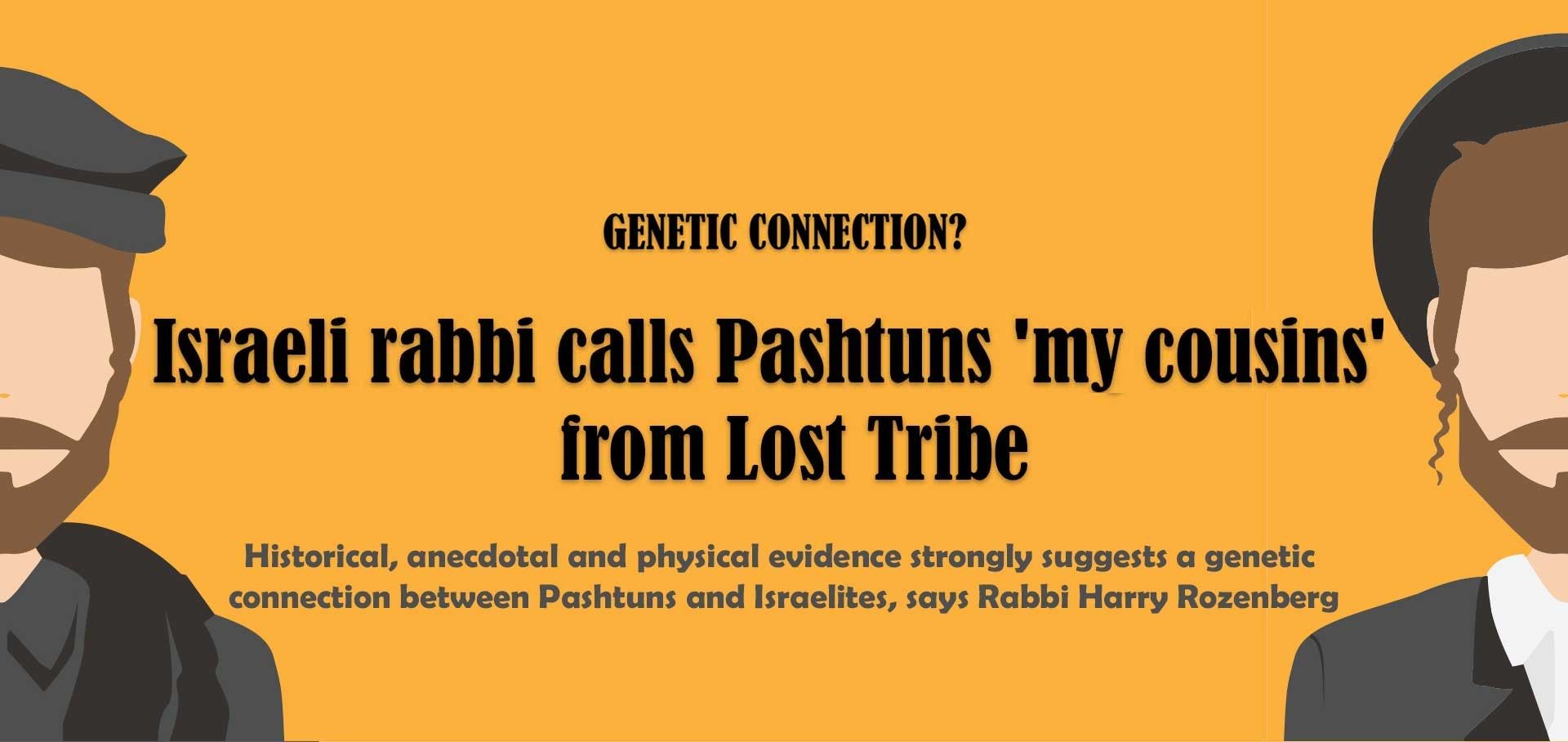
KARACHI. The ethnic Afghans, or Pashtuns, originated from the biblical Lost Tribes of Israel. It's an old theory. And many Pashtun tribes proudly subscribe to it. But it's not just a theory. Not just a hypothesis. We have historical, physical and anecdotal evidence to establish a genetic connection. This is what Rabbi Harry Rozenberg believes, at least.
"Pashtunwali makes it very clear to us who they [the Pashtuns] are," says the Jerusalem-based rabbi while referring to an unwritten tribal code the Pashtuns have been following unfailingly for centuries now. "It's the Mosaic Law in its most primitive form that these people in Afghanistan and Pakistan are keeping to this day."
If the Pashtuns accept their Israeli [Jewish] origin, their identity, it'll be the fulfillment of an ancient prophecy, says Rozenberg, a social entrepreneur who heads iTribe.us, a global platform to connect the Israelite tribes scattered across the world.
"If we move down the history of the tribes of Israel, we know they were sent to Chavor. Verses [of the Torah] speak about it," he says in a Skype interview with The Express Tribune. The reference is to the Second Book of Kings. It says when the Assyrians conquered the northern Kingdom of Israel (Samaria) some 2,730 years ago, some of the 10 Jewish tribes had been exiled to Chavor [Khyber], on the banks of the River Gozan [the Gazni River].
Rozenberg is not making a new claim. In the late fifties, Israel's second president, Itzhak Ben Zvi, also referred to the exile from Samaria. "The Afghan tribes, among whom the Jews have lived for generations, are Muslims who retain to this day their amazing tradition about their descent from the Ten Tribes," he wrote in 'The Exiled and the Redeemed'.
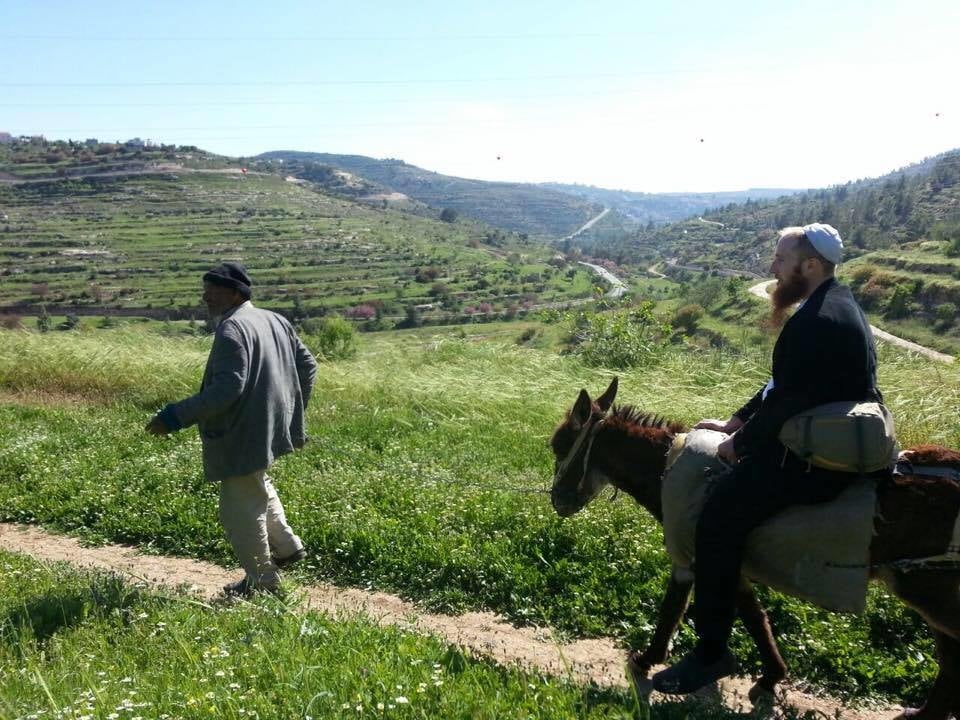
The two remaining tribes – Benjamin and Judah – became the modern-day Jewish people, while the search for the Lost Tribes has continued ever since. "Verses also say that one day the people of Judah will have their land, they will get in touch with the Lost Tribes and work together to unite," says Rabbi Rozenberg, who is considered to be one of the leading voices backing the reconstitution of a global Israelite family.
"It's like a movie script. And while watching the movie, I'd expect to see the people who say they are from the ancient tribes of Israel. Now that's happening. And we already know how that is going to end, how it'd look like, what we are supposed to do together. The whole world map has been set. It's about time to activate," says the rabbi.
Notwithstanding ample evidence, definitive scientific proof has never been found to establish a genetic connection between the Pashtuns and the Israelites. Do we need a DNA test? "It could be an interesting thing, but it's not sufficient," says the rabbi. "We don't necessarily have the DNA mapped out on the ancient people of Israel, like Abraham, King David, or Jacob."
"There are common fusions among Israeli communities as far as DNA goes, but that doesn't mean much because there are millions of Ashkenazi Jews today while we teach they came from only 300 families," he says. "DNA is a mystery until we go to the graves of all Israelite kings and leaders and start taking DNA samples."
Nonetheless, genealogy-enthusiast Nadene Goldfoot says some DNA tests have confirmed a genetic connection between the Pashtuns and the Israelites. "Indian historian Dr [Navras Jaat] Aafreedi did a genetic study on the Afridi clan of Pashtuns in Malihabad, India. It was found that 650 out of the 1,500 members had DNA similar to genetic DNA found in Jews," writes Goldfoot, the author of 'Messages from a Syrian Jew Trapped in Egypt'.
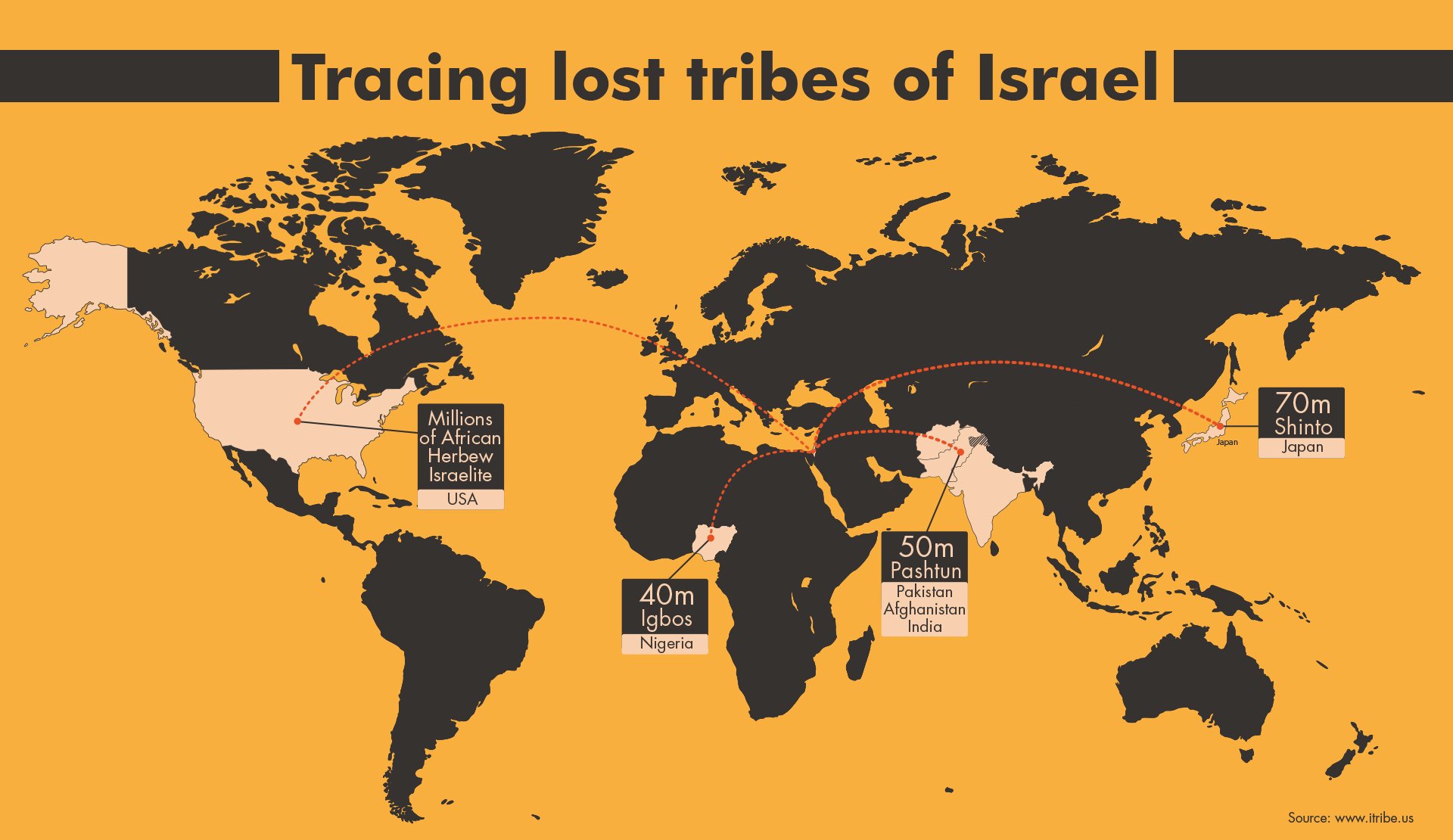
"Research shows a relationship between Pashtun and Jewish (Ashkenazi, Sephardic, Mizrahi) DNA and also that Pashtun DNA is 2nd closest (68.1) to Ashkenazi DNA after Iranian and Iraqi Jews (67.9). Most of this research used Yousafzai, Afridi or Khattak samples from Pakistan and India," Goldfoot wrote in a blog 'Can Pashtun tribe of Afghanistan have Jewish roots? What DNA says'.
Rabbinic literature is full of direct and indirect references to the Jewish origin of the Pashtuns. And some leading Israeli anthropologists believe that, of all the many groups in the world who claim a connection to the Lost Tribes, the Pashtuns have the most compelling case.
"There are scholars of the highest stature from almost every university of Israel, and the greatest rabbis of Israel are today aware that the Lost Tribes are in Afghanistan. Scholars in several universities, including Hebrew University, Tel Aviv University and Ariel University, have written and are writing on the topic. And they all support this view," claims Rozenberg.
Many Pashtuns proudly claim that they are Beni Israel (Children of Israel). They have well preserved genealogies to establish the genetic connection. It's a paradox, though, because they consider the term Yahood (Jew) a reproach. And more ironically, the ultraconservative Taliban, who have emerged from the Pashtuns, consider Jews their sworn enemy.
Rabbi Rozenberg believes this hostility is because of the political Israel which has a bad name to it, not because of the great sages, the seers, and the wise men of the Jewish people. "The Jewish people have two separate leaders: the scholars of the Torah and the government. If the people in Afghanistan have animosity towards their brothers in Israel, we have to explain to them the difference between political Israel and the actual people of Israel," he says.
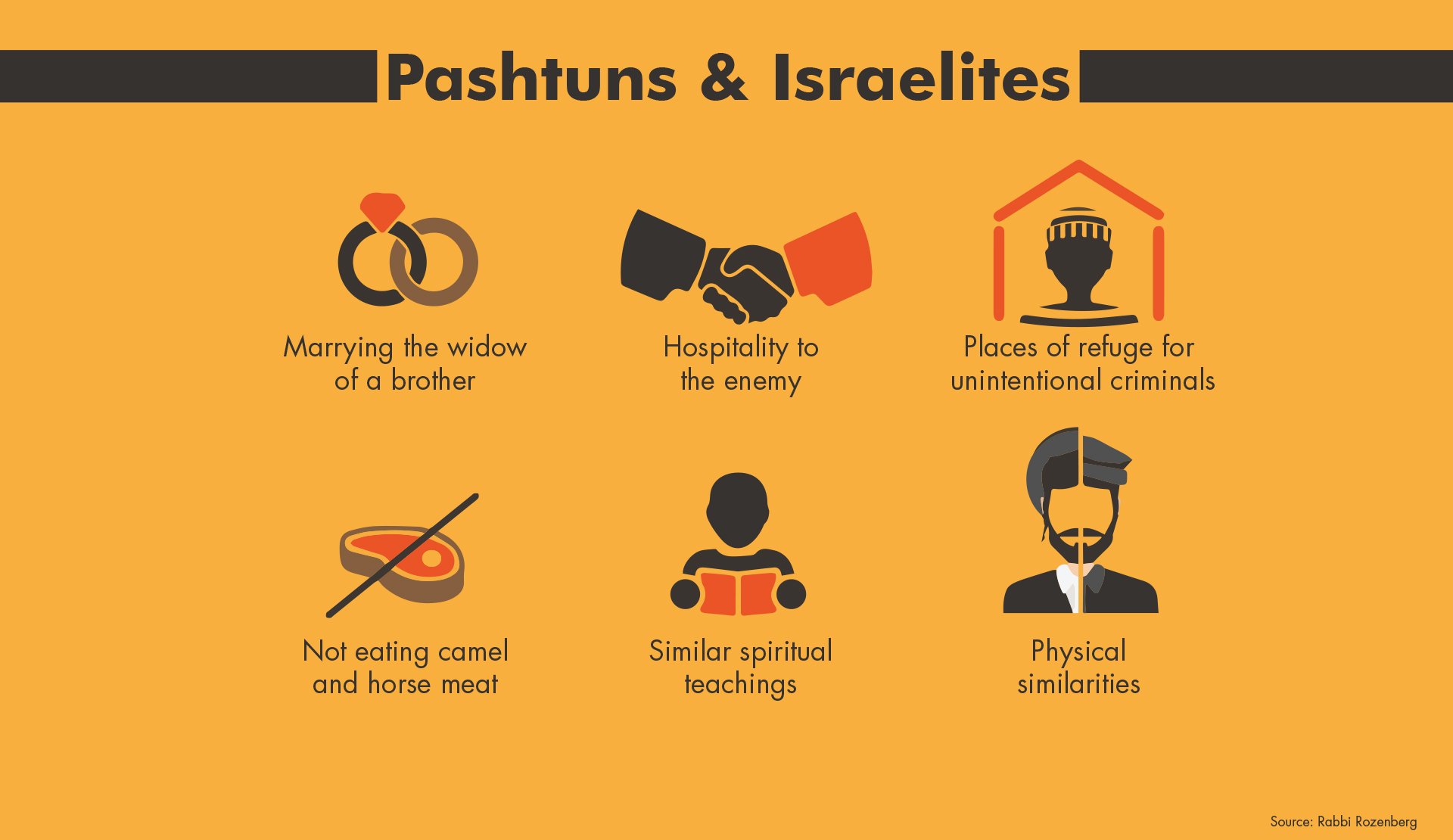
Rabbi Rozenberg, who also teaches a course on the Lost Tribes at Trio Academy, believes today's political leaders of Israel belong to the biblical 'mixed multitude'. The Book of Exodus says that when the Israelites left Egypt and went into the desert with Prophet Moses, some other people who were impressed with his miracles also joined them. "These people sinned greatly and made the Israelites sin too," says the rabbi. "Jewish teachings tell us that today the leaders of the Jewish people are from the 'mixed multitude'."
If their Semitic origin is established, will the Pashtuns need to convert to Judaism or migrate to Israel? "No," says Rozenberg. "When people think about the Lost Tribes, the first thing they think of is conversion to Judaism, right? I personally don't think this is the first step. Like I said, if the Pashtuns claim to be my cousins from the ancient family that are destined to reunite, we should not care about anything else for the fact that we can speak together."
Apart from their patriarchal appearance and Semitic features, the Pashtuns have several other commonalities with the Israelites. "Certain Pashtun customs connect them to the Law of Moses. For example, if someone dies, then his brother marries his widow to continue the name of his brother's seed. [Similarly] hospitality to your enemy is another area of the Mosaic Law. And places of refuge where one can go for protection. The Mosaic Law calls for setting up places where people cannot take revenge on you," says Rozenberg. "They don't eat camel. They don't eat horses which is common among cultures around them."
But the rabbi says it is not just physical similarities that the Pashtuns share with the Israelites. They have spiritual teachings that are similar. "I've friends from the Mahmudzai tribe of Pashtuns. And they have ancient teachings which are very similar to Kabala, the mystical side of Judaism," he claims. "All these things are obvious signs that we expect to see a people we were expecting to surface right about this time in history."
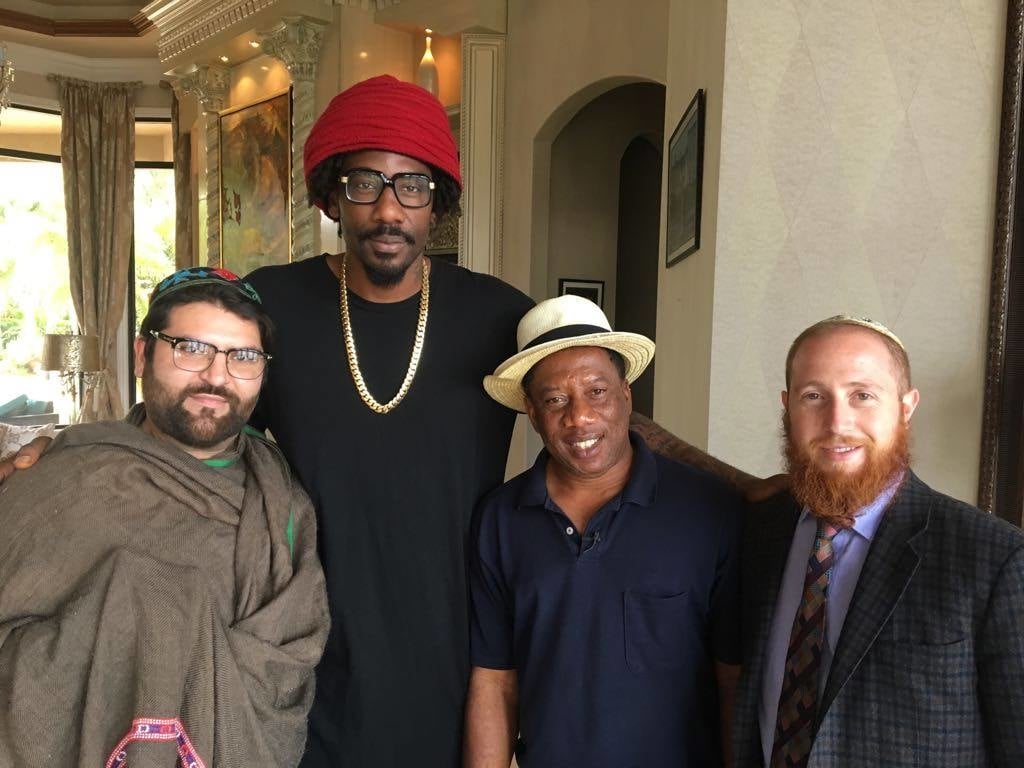
Rozenberg's global platform iTribe.us aims to gather together the people of lost identity. If you're on Facebook or any other social network, you can register your community, your village, and it will show up where you are. It's free to log in. "Basically, this is the place where we can map out every single village, every single community in the world that says they are from the Lost Tribes. Once you map it out, people can meet each other, share messages, photos, videos, and exchange information," says the rabbi.
The land of the Pashtuns, both in Pakistan and Afghanistan, is impoverished, dirt poor, with infrastructure in tatters and medieval lifestyle. Rozenberg says they want to introduce cross funding features to their social network so that global Jewish financers can donate cash to help rebuild infrastructure for the Pashtun communities with sustainable technology, like electricity from the thin air, water filtration, food production, and other types of things Israel has innovated.
"We can have a real alliance with technology in Israel to our brothers in Afghanistan," says the rabbi. "And I think part of the prophecy says that we are going to have a highway that will bring home the Lost Tribes. Maybe, in the next 10 to 15 years, we will have a highway that will connect Israel to Afghanistan, like a speed train. The same day you can come and have a cup of tea with me in Jerusalem and then go back to the mountains, maybe near the Khyber Pass," he adds in a lighter vein. "With the latest technology, we can make that happen."
NAVEED HUSSAIN
Story
FARWA ZAINLI
Animation
ATHAR SAEED
Music
SARAH PRICE
Producer
EXPRESS
Creative

